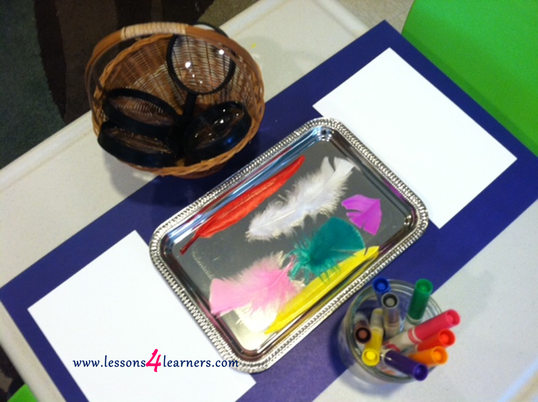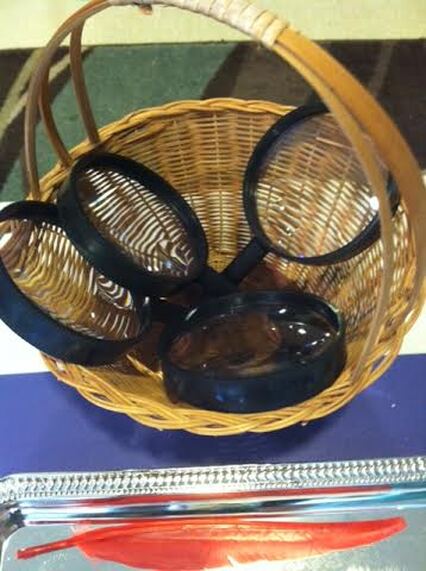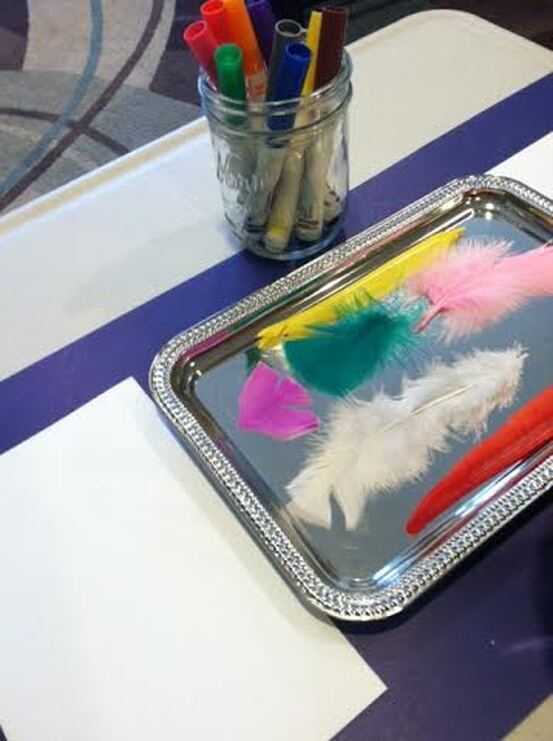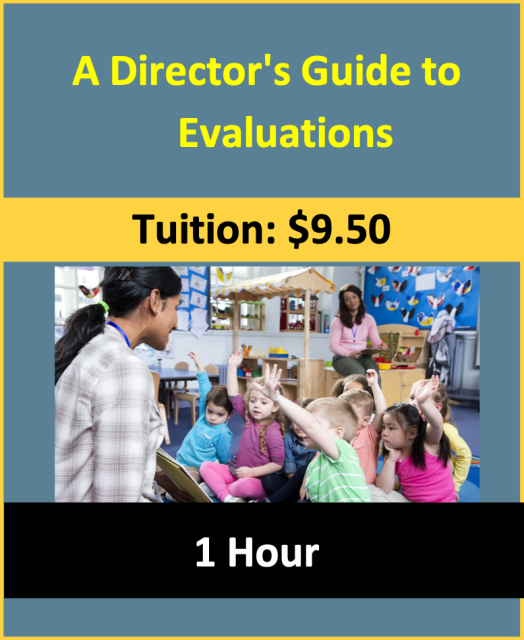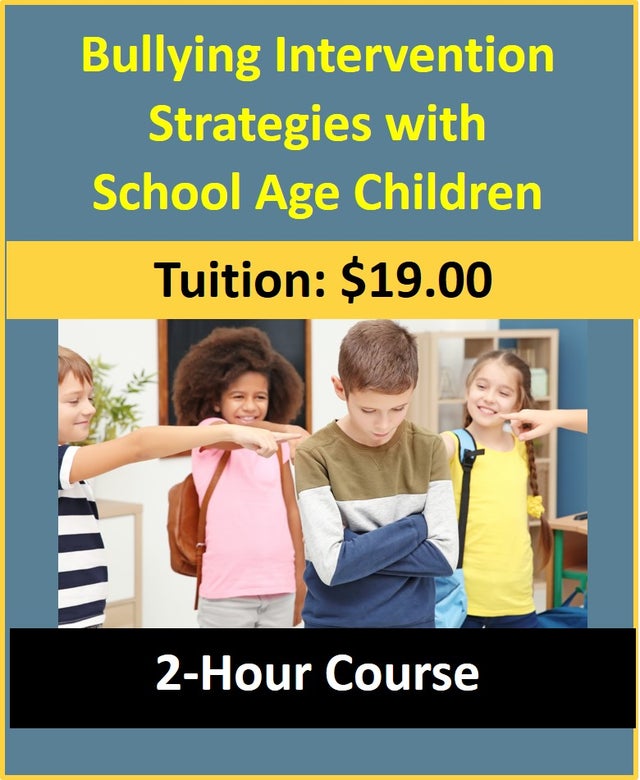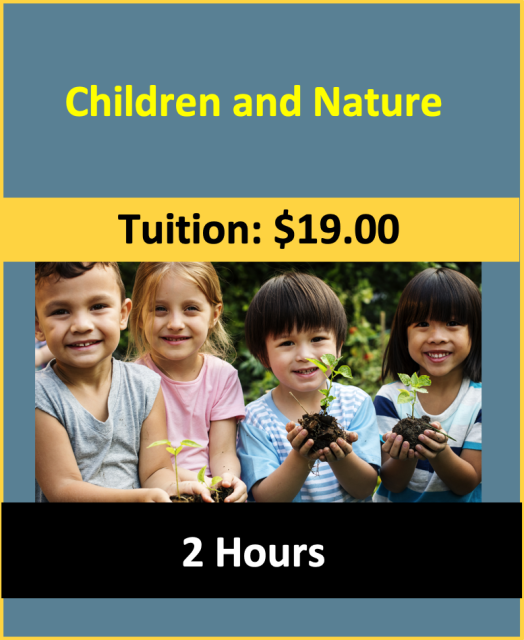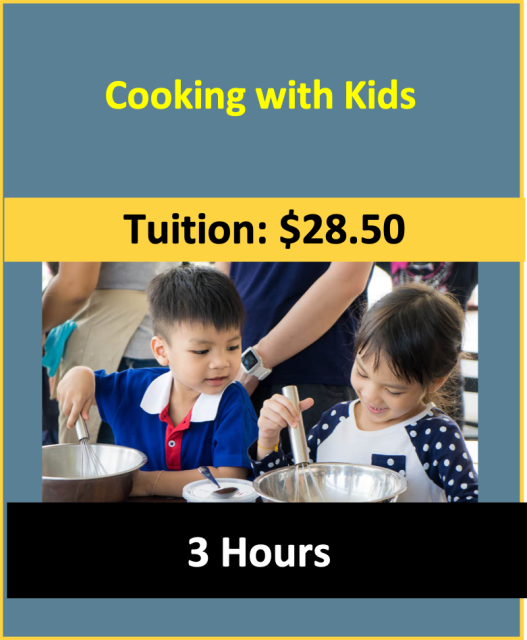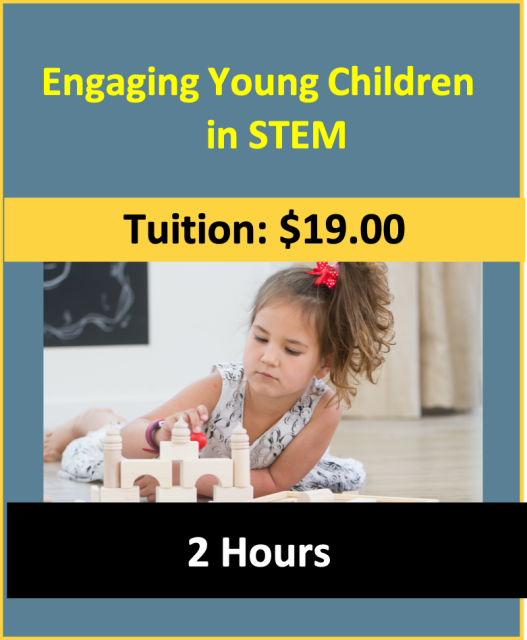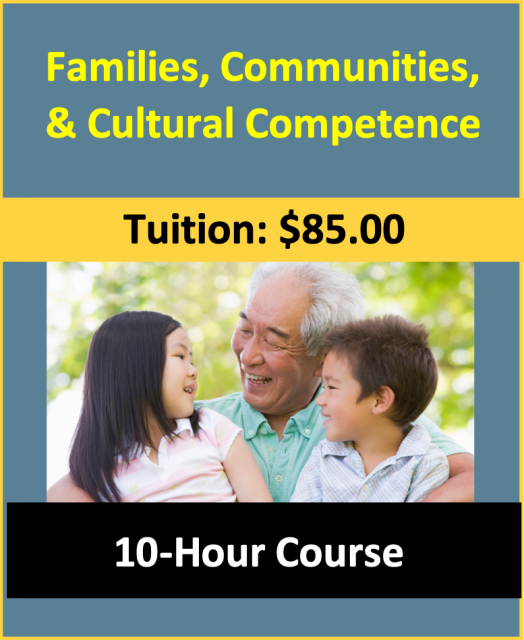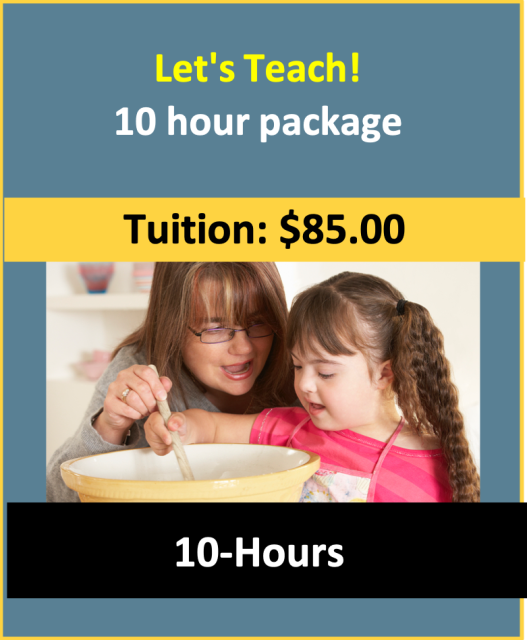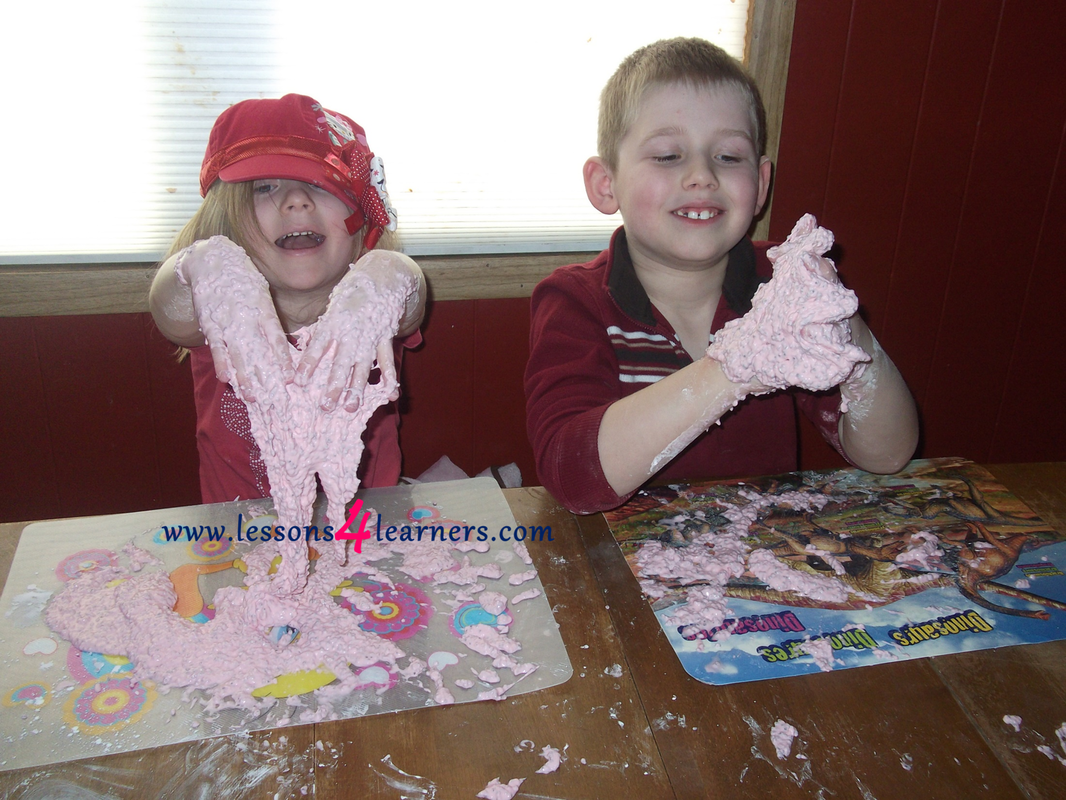Feather Observation
Lesson Plan:Activity:
Feather Observation
Lesson plan developed by Ms. Erika Geelhoed, BA Ed
Age Group:
* Lesson plan objective and assessment can be adapted to use this activity with preschoolers.
Objectives:
Children will
EALR 4
|
|
Click on the photos to enlarge.
|
Materials:
Procedure:
|
Assessment:
- Review children observation forms.
* If desired, you can create a book using their observation forms to have in the classroom. Using the children's work to make a book promotes self-confidence and helps students feel a sense of ownership.
Click on the course icon for enrollment information.
Learning through Sensory Play
|
Children learn best and retain the most information when they engage their senses. Cognitive skills sharpened by sensory play are problem solving and decision making; simply present a child with a problem and various materials with which to find a solution, and you can almost see the connections their brains are making. Children can build math skills such as comparing size (big versus small), counting and one-to-one correspondence (matching numbers to objects), timing (does water or oil move faster?), matching (same sizes and shapes), and sorting and classifying (buttons, beans or rice), and science skills such as cause and effect (what happens when I add water to sand?), gravity (water slides down a funnel, not up) and states of matter (ice melts).
|
Sensory play encourages children to use descriptive and expressive language, and to find meaning behind essentially meaningless words or gibberish. Certain sensory play options, like sensory tables, allow children to be in complete control of their actions and experiences, which boosts their confidence in decision making and inspires their eagerness to learn and experiment. Sensory play benefit the development of fine motor skills by encouraging manipulation of materials, such as mixing, measuring, pouring and scooping, while other examples, such as exploring surfaces, lifting, throwing, rolling and water play, help develop gross motor skills.
